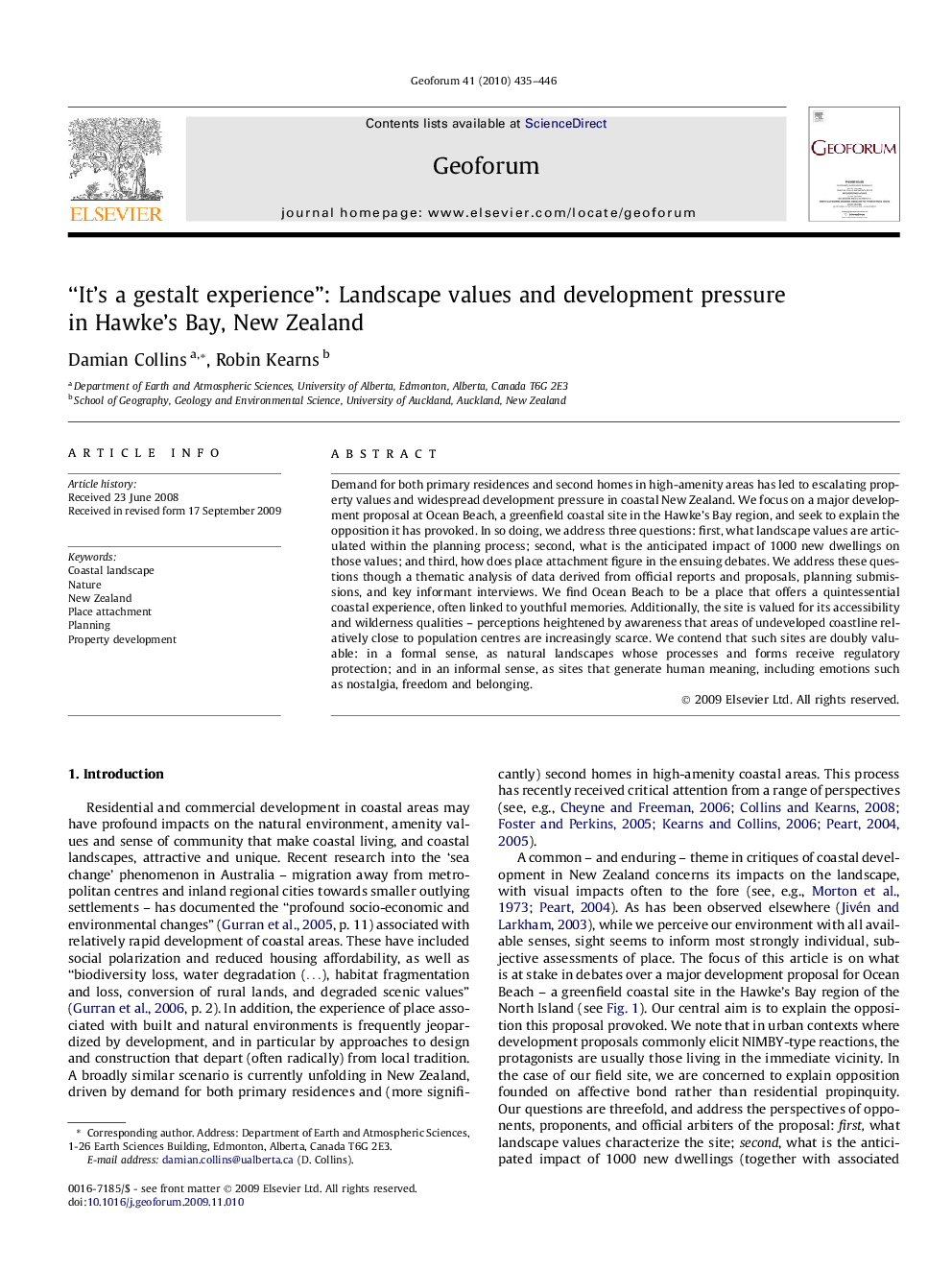| Article ID | Journal | Published Year | Pages | File Type |
|---|---|---|---|---|
| 5074669 | Geoforum | 2010 | 12 Pages |
Abstract
Demand for both primary residences and second homes in high-amenity areas has led to escalating property values and widespread development pressure in coastal New Zealand. We focus on a major development proposal at Ocean Beach, a greenfield coastal site in the Hawke's Bay region, and seek to explain the opposition it has provoked. In so doing, we address three questions: first, what landscape values are articulated within the planning process; second, what is the anticipated impact of 1000 new dwellings on those values; and third, how does place attachment figure in the ensuing debates. We address these questions though a thematic analysis of data derived from official reports and proposals, planning submissions, and key informant interviews. We find Ocean Beach to be a place that offers a quintessential coastal experience, often linked to youthful memories. Additionally, the site is valued for its accessibility and wilderness qualities - perceptions heightened by awareness that areas of undeveloped coastline relatively close to population centres are increasingly scarce. We contend that such sites are doubly valuable: in a formal sense, as natural landscapes whose processes and forms receive regulatory protection; and in an informal sense, as sites that generate human meaning, including emotions such as nostalgia, freedom and belonging.
Related Topics
Social Sciences and Humanities
Economics, Econometrics and Finance
Economics and Econometrics
Authors
Damian Collins, Robin Kearns,
